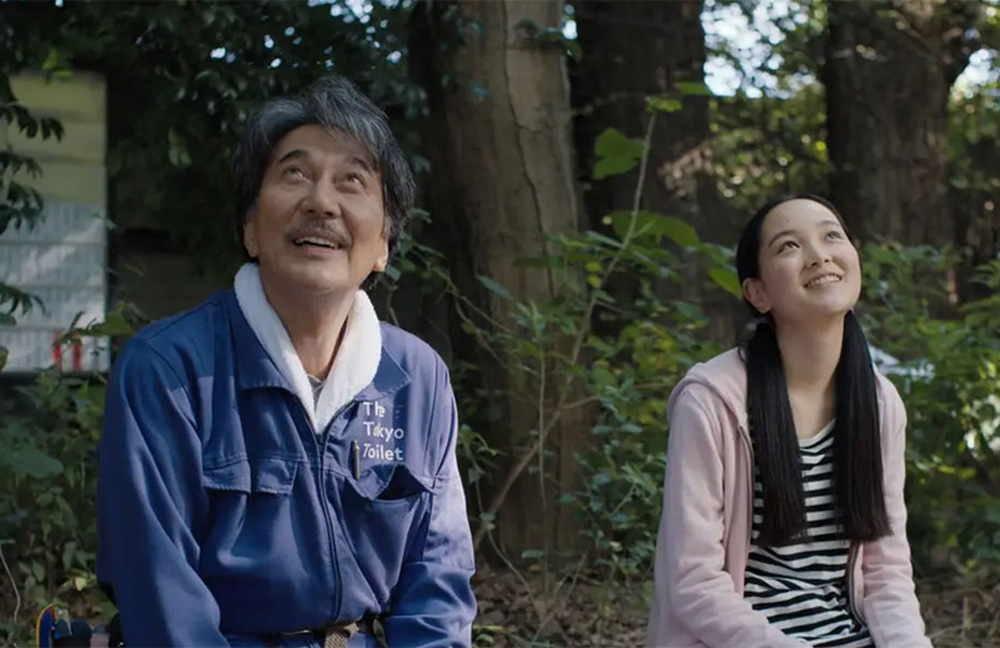“How the hell does this work?” a woman asks in “Perfect Days,” puzzled by a personal public restroom that doesn’t appear to give any privacy until Hirayama (Koji Yakusho) shows her that closing the door fully will turn the translucent walls opaque. Words aren’t required to give her a sense of relief when it’s clear he’s done this demonstration before, calmly making a few deft motions and returning back to his work as a custodian, with dozens of keys jangling around his belt for his job that takes him all around Tokyo, but seemingly holding onto one that has unlocked the key to life when the humble job and an equally humble home has allowed his mind to wander elsewhere and never be burdened by stress.
A sense of tranquility isn’t exclusive to Hirayama in the latest from Wim Wenders, a gentle character study suffused with plenty of Lou Reed and Patti Smith that lets one share in the reverie that its lead character often has, unbothered by much of anything or anyone as he goes about his daily routine. He is likely tested the most by his younger cleaning partner Takashi (Tokio Emoto), who rates people on a scale from 1 to 10 and has plenty of questions for Hirayama when he can’t understand his life of solitude, nor how he seems so unbothered to wake up for the morning shift where he is surely going to be greeted by the puke of drunks using the facilities from the night before, but Hirayama doesn’t waste the energy of trying to explain himself, which seems to be as much a key to his calm as anything else.
Hirayama’s job doesn’t define him, but it does shrewdly give a shape to the film, allowing his passion to come out in the car rides from place to place where he jams to cassettes that clearly have been in his van since he first bought in and while he’s overlooked by all those who benefit from his diligence, he’s attuned to all the little things that he sees, able to get pleasure from them when others might not even think to. If simplicity is key to its lead character, “Perfect Days” follows his example when Yakusho, such a stoic presence in films from “Cure” to “Babel,” can do so much with the smallest expressions, the unfussy camerawork of Wenders’ longtime cinematographer Franz Lustig brings out the natural beauty that can be found in the unlikeliest corners of the urban jungle and the film is broken up by occasional and always welcome transfixion of black-and-white dream installations provided by Wenders’ wife Dorota.
When the intention is to get an audience to be entirely present, Wenders and co-writer Takuma Takasaki are quite delicate in bringing the past into the film, observing how Hirayama is slightly flustered by the surprise arrival of his niece Neiko (Arisa Nakano) for reasons having only slightly to do with suddenly having to sneak around someone else sleeping in his abode to water his plants in the morning and more about what she represents. A care-free existence would only seem possible when one knows what to insulate themselves from, and while careful not to show Hirayama having all the answers, “Perfect Days” exhibits plenty of wisdom in identifying what’s worth spending time on, making sure yours is well-spent in watching it.
“Perfect Days” will be released later this year by NEON.




